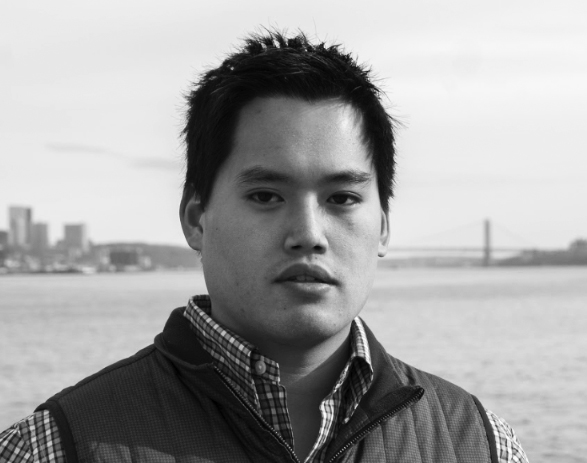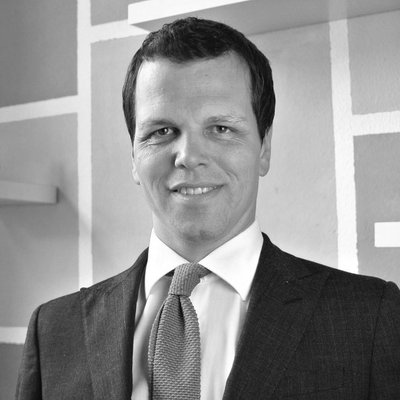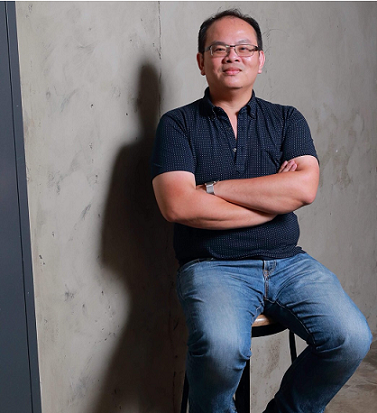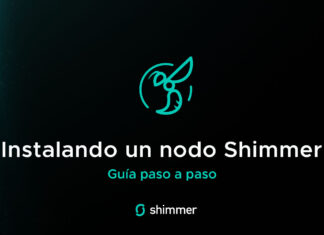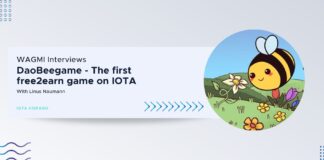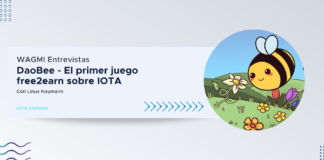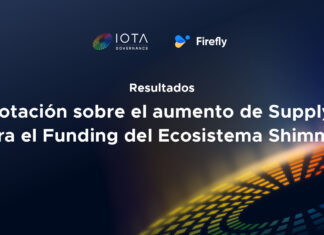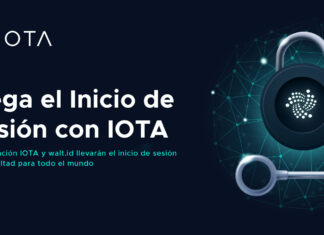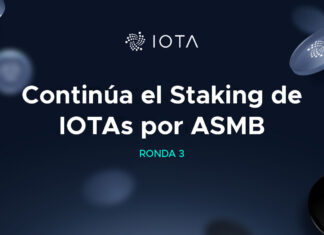
I met Kevin Chen at some point of 2017, in the IOTA Slack. I can’t remember when (and I have no way to find out since Slack deleted most of our conversations). I think it was Rajiv Shah who introduce me to Kev and I know for sure that the first time we spoke he told me about the IOTA Evangelist Network and kind of invited me to apply. It took me some time to do it, but I finally ended up becoming a IEN member some months ago. Since then, as a part of this network, I got in touch with lots of people around the globe doing amazing stuff with IOTA from their different fields.
This interview is my way to thank Kevin and the rest of IEN members for letting me be a part of this. If you don’t know about IEN this is a must read.
Daniel De Michele (Carpincho Dem)
Director de contenidos, IOTA Hispano
IOTA Evangelist Network member & Ecosystem Developer
Tell us a bit about your background.
I have been fascinated with technology since I was very young, when I watched my dad gave up his career in chemistry, self-taught himself programming, joined an Internet startup in the late 90s. He would often take me to his workspace, where he demoed early versions of their e-Commerce site to me. I started developing using Java when I was 14, took advanced coding classes in high school, and graduated with CS degree from university. Since I also enjoyed finance as well, I decided to work on Wall Street doing FinTech for a few years, rather than joining a startup or tech corp in the Bay Area. There, I was first an application developer at a major bank, then a data analyst at a mid-sized credit hedge fund.
When/how did you approach DLT world for the first time?
To be honest, when I first heard about Bitcoin in 2011 and 2012, with my limited knowledge its breakthrough underlying tech, I was like “meh” and thought it was nothing more than digital equivalent of trading cards or drug money for libertarian-anarchist shills (I’m moderately libertarian btw). I’ve actually become enamored with Dogecoin at some point because I like shibas and memes and the wholesome community around Doge, a welcoming contrast to the “shadiness” rep around Bitcoin back then. I didn’t dig deeper beyond the cryptocurrency aspect until just a bit over 2 years ago, something I still regret not getting into even earlier. While I was still working in finance, I kept hearing the word “blockchain” buzzing around the media, but none of my colleagues knew what it was. So I decided to explore this “blockchain” phenomenon myself. Once I realized how 1) how “blockchain” architecture ties into Bitcoin and other cryptos and 2) how disruptive “blockchain” and then “smart contracts” are to FinTech, where I’m situated in, I realized that there is no turning back. I have jumped into the blockchain/DLT rabbit hole for good. I first independently self-research and self-taught myself the technical concepts off-hours. Then, I started to register to dozens of meetup groups at Meetup.com relevant to blockchain around NYC, and begin schmoozing with the fellow crypto-geeks there. That is where we began diving to various altcoins, and exploring other blockchain applications beyond finance and capital markets, as a way to broaden our peripheries.
When did you find out about IOTA and what was your first impression?
I first came across IOTA late 2016, when I was exploring how blockchain intersects with other emerging techs, esp. IoT. One day, I basically Google searched “blockchain + IoT”, and IOTA came up. My first impression: awe with a hint of skepticism. I was floored by the audaciousness of IOTA’s vision and the series of moonshots it wanted to accomplish concurrently. IoT/M2M microtransactions? Post-quantum cryptography? Ternary computing? Sounds all like alien technologies to me initially. Is this too much pie in the sky? I’d never came across an alt like this, and probably never will.
However, when I read deeper through the IOTA materials from the whitepaper to the blog posts, I began to realize that IOTA founders and team have put a tremendous amount of thought and prepwork behind this project and are indeed up to something really legit. They are fulfilling a huge market need for secure IoT networks that enable frictionless M2M data and value transactions (big or small), thus greatly enhancing the usability of smart connected devices. The number of these devices is growing by the billions annually, impacting large swaths of industries such as Mobility, Supply Chain, Energy, and Manufacturing. The more I read through this literature, the more I realized the realism and the concreteness of what IOTA is trying to do. This is not some gadget technology for something in the far future but rather a useful tool for the rapidly evolving world today, where the window of opportunity has just opened and will just keep getting wider, esp. once IOTA reaches maturity. It told me a bit to reframe my thinking/assumptions from linearly extrapolating current technology to the actual exponential growth of new tech. But once I did, I’m sold on the IOTA tech, the team, and the timing, and want to be a part of this amazing endeavor. Here are two of my fav quotes that encapsulates this:
“We always overestimate the change that will occur in the next two years and underestimate the change that will occur in the next ten. Don’t let yourself be lulled into inaction.” ~Bill Gates
“I skate to where the puck is going to be, not where it has been.” ~Wayne Gretzky
You are the head of the IOTA Evangelist Network. We will like to know what the IEN is.
IOTA Evangelist Network (IEN) is an eclectic, tight-knit, human mesh network of dedicated IOTA enthusiasts, community leaders, and innovators from various walks of life worldwide. Our DNA make-up include developers, hardware engineers, solution architects, entrepreneurs, data scientists, makers, roboticists, researchers, futurists, designers, project managers, business developers, executives, bankers, business/financial analysts, sales reps, marketers, consultants, filmmakers, DJs, restaurateurs, pharmacists, teachers, and students, and more. We work in startups, large corporates, universities, state governments, and nonprofits alike across diverse industries. We join forces around our passion for IOTA technology and volunteer time and energy to support IOTA Foundation’s goal to educate and promote IOTA globally to achieve ubiquitous adoption via co-creation. We do this through meetups, events, workshops, and use case/PoC implementations.
Why “Evangelist” and how did IEN start?
Evangelist is a jargon in the technology industry about a professional whose role is to build critical mass for a certain technology product, platform or standard. That is exactly what we are trying to accomplish with IOTA. Unfortunately, that term also happens to carry some negative dogmatic connotations (esp. for non-techies), and some folks did ask us about whether we are indeed members of a cult. That cannot be any further away from who we actually are. But hey, maybe being a cult leader may not be that bad of a gig. :p
IEN started back in August, where I was one day procrastinating and browsing around IOTA subreddit. I came across a post from a fellow redditor saying he wanted to evangelize IOTA in Montreal but wasn’t sure where to begin, and needed help. I responded saying that I have an IOTA Meetup in New York already set up and scheduled a call to see how can I assist. Prior to the chat, I thought about since IOTA has such a colossal community base (40K+ in Slack at one point), there must be a bunch of other enthusiasts out there who also wanted to contribute further but needed the same guidance and supporting base to do so. When I had that initial call with that Montreal dude named Allen, I proposed starting this close community group and network to become that supporting base: where we can learn, share knowledge and opportunities with each other, and cover each others’ backs. We named it IOTA Evangelist Network (IEN) and became co-founders. With generous support from David, Dom, Will, and others from the Foundation, we set to work to gradually but steadily recruit new members and expand IEN to where we are today.
How many members does the IEN has? Are they all tech savvy? If not, what other profiles you guys have on board?
IEN currently has around 120 members in over 40 countries, and we are admitting on average 3-4 a week. Most in IEN are tech-savvy, who understands IOTA and DLTs inside-and-out at least conceptually, if not also programmatically. Aside from IOTA techies, we also have those with target domain and industry expertise, as well as individual members in large corporates and consortiums who evangelize IOTA from within.
Is it a limit on your mind to “how many members should the IEN have”? If so, why?
Yes there should be a limit. IEN lives and dies by the strength of our network, the rapport that we have formed with each other, and the ability for us to mobilize and coordinate in real-time. If we grow too fast or become too large for us to handle, then we risk losing some of that essence, our ethos. It is hard to estimate the headcount of what that limit may be a priori, but is something that we can sense once the limit is reached. But at the moment, we still have some room to grow and actively seeking out new members around the world to join our ranks.
How do you apply for IEN? Who is your ideal candidate and selective are you?
You can apply via our website: https://ien.io/apply
The ideal candidate we seek contain most if not all of the following traits:
- Passionate about IOTA and stay informed about its progress
- Able to volunteer time to our efforts
- Proactive and engaging
- Innovative mindset
- Based in a country, industry/domain where we are lacking
- Have some specific skill-sets that we are need
For example, because we do not have a presence in Africa yet in IEN, one of main priorities is to expand our coverage to Africa.
What is your vision for IOTA and IEN growth in the coming years?
In the long term, I envision IOTA as a general-purpose technology and a major standard for the upcoming connected Machine Economy and 4th Industrial Revolution. IOTA does have the pieces to make happen: decentralized (once Coo is removed), feeless, scalable, allows both data and value transaction. This allows the creation of new protocols for M2M to become automatic buyer-seller.
Here is a simple protocol flow as an example. First, the buyer and seller machines open communication channel to each other, then authenticate each other IDs and check each others’ reputations, then seller performs service to buyer and sends an invoice message upon completion, then buyer pays the seller with tokens, then seller sends receipt message to buyer as payment confirmation, and finally they close communication channel and part ways.This type of protocol is especially valuable between intelligent AI-driven machines, from AVs to drones to industrial robots to swarm bots, where they can handle greater types of message structures and means of payments (token currency or token debt/IOU) that they can send to each other. This opens up brand new circulatory systems for machine data and resource markets. We can only imagine the ripple effects this can have on our greater economy and standards of living. Best of all, these types of M2M protocol can be done solely via the Tangle as the data/value transport layer, plus with some encryption on top on it via MAM, or some smart contract functionalities via Qubic.
From that illustration, you can see that IOTA is plug&playable in multitudes of IoT/M2M use cases. Green fields and blue skies in terms of potential. However, in order to realize this potential, IOTA need to achieve mass adoption and great network effects, an immense undertaking that I don’t think that the Foundation can achieve on its own. It also requires large, coordinated efforts from the community. There is where I think IEN can really help spearhead, such as converging upon common standards around the tech, and especially in corners around the world where the Foundation does not have as much of a presence.
What would you say to people willing to get involved with different aspects of the IOTA project?
If you want your project to last and make an impact, then whatever you do, stick with it and grind it out through all the good times and the bad. This is as long as you believe in the long-term viability of a project and really enjoy what you are doing. More likely than not, the results of your labor will initially be slim to none. But that’s fine as your results will accumulate over time, similar to the interests on your investments. Consistency compounds.
During my time in the DLT space, I have seen plenty of project getting announced with great fanfare and large ICO raises, only to fizzle away with little to show. Then I see IOTA: a stealth mode project with a humble raise before mid-2017 evolving into a rocketship after mid-2017. To reach your end, master your means. And the best way to master is again sticking with it so you get better after each iteration. Not much different than the process of mastering a musical instrument, a sport, an art piece, a game, or a dance move, or any other specific skillset.


